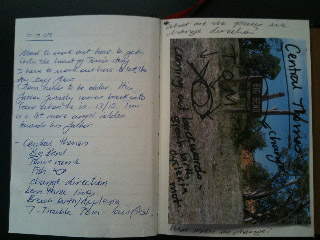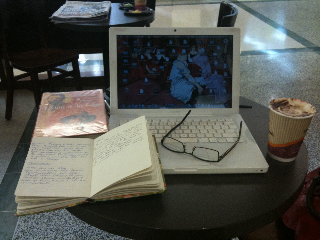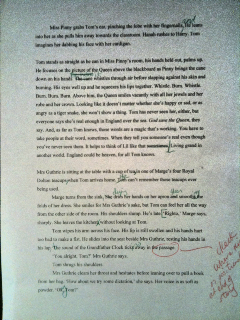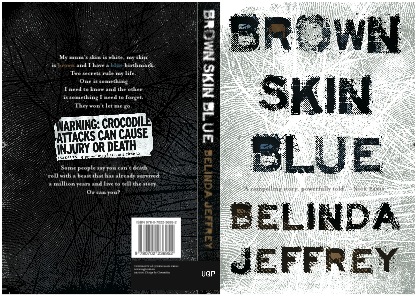
| current issue |
| archives |
| submissions |
| about us |
| contact us |
| short story competition |
sponsored by
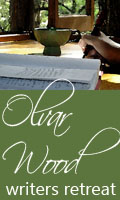
Belinda Jeffrey interviewed by Inga Simpson |
||||||
What is your writing process? Are you able to write full-time? I would love to be able to write full time but I work a few casual jobs for immediate income. I do a bit of adult education here and there and also run Brisbane’s Better Bookshops organising author events for big-name authors. I tend to write in bursts though I can be fairly prolific when I’m in the seat of a story. My ideal work day would be to write from 9-3 while my kids are at school. Some days this is possible, though I’m usually sneaking in writing time while the vegies are cooking. What about your editing process? Can you step us through what you do once you have your first draft? I’m not a very organised or ‘neat’ writer in that I tend to flip from writing, to research, from the subconscious ‘flow’ to the analytical and editorial any time I feel a particular process isn’t progressing the story. I play with various methods of analyzing and pulling apart scenes and and the whole story to extract key sentences, phrases, ideas and metaphors that drive the story. I keep a journal as I’m writing which is a collection of my thoughts and ideas as they come to me. It could be words, phrases, pictures and questions, or it could be a ‘self counseling’ type dialogue with myself to unlock what I can’t see about my characters or the scene, plot, etc. My journal is a journey of how my novels unfold throughout the drafting and editorial phases. I work the same way through every draft of the novel – I don’t keep count. When it’s ready, I get editorial feedback from my publishers, my husband and friends, then plough back through the manuscript. I write lots of notes to myself and I like to work on the soft copy while making changes, then read a hard copy. I tend to find different problems this way. Can you describe your office or writing space? At the moment my office space is in the garage, though I do most of my writing at my local Gloria Jeans coffee shop. I love the feeling of being cocooned into my own mind by the thrum and community of people around me.
Why do you write? Writing is the only thing that makes sense of who I am, how I think and process the world and myself. I have a burning need to express my ideas and observations and thoughts about the world, both real and imaginary, and writing novels is the only thing that resolves that need. Writing is something I just can’t not do. Has there ever been a time when you did not or could not write? I don’t think there’s ever been a time when I could not write, though many days when my writing is hijacked by other responsibilities. And there are many, many times when I can’t write anything good. Who are your favourite writers and why? Tim Winton and Marcus Zusak would be my favorite writers, though after 2009 I’d add Phillip Meyer and Craig Silvey to this list. Cloudstreet Did you plan on writing Brown Skin Blue for a young adult audience, or did it happen by accident?
I had already written a draft of Big River, Little Fish (very different to the version that will come out later this year) and my agent suggested it was YA. Though when I thought of YA I thought of teenage fiction; all the warlocks and wizards, fairies and babysitters club books lining the YA shelves of bookstores. I thought that books dealing with real people, uncomfortable issues, belonged in Adult fiction. Just after I’d written the first chapter of Brown Skin Blue, I read about an international publisher looking for YA texts dealing with hard-hitting issues and I thought there might be a market for my style of writing. Ultimately I didn’t write Brown Skin Blue to be adult or young adult, just the story it had to be. I was happy for the decision about its marketability to come later. It’s now promoted to both adults and young adults. Tell us about the new book, Big River, Little Fish? I understand this one is set in your birth state, S.A. On the Murray?
Big River, Little Fish is set in South Australia at a place called Big Bend near the town of Swan Reach during the 1956 Murray River flood. It tells the story of Tom Downs; a boy trapped between his way of reading the world and the world's way of seeing him. He lives in the town but likes it best down by Old Mother Murray, talking to his best friend, Hannah, and helping the outcasts and loners that live in shacks on her banks. But there’s a big river coming and Tom feels like everything he loves and understands might be swept away and lost. From the moment he was born tail first - the moment of his mother’s death - time has held Tom the wrong way round, like he’s caught inside a fractured story. But the thing about the river rising, the thing that takes him by surprise, is not what she takes away, but who she brings back. This novel is inspired by the years I spent at this exact place on the river at Big Bend at my father’s shack. It’s the most magnificent spot on the river and is home to the tallest stretch of limestone cliffs anywhere along the Murray.
The landscape is such a strong presence in Brown Skin Blue, and it sounds like this is true of Big River, Little Fish as well. Is place important to your own sense of identity? Are there particular places that have been formative? I love going to different landscapes and find that it opens me up to different emotions, ideas and observations. I’d happily be a nomad roaming the world. I love new places, new experiences more than the comfort of familiar places. That being said, both the Northern Territory and Big Bend on the Murray River have many memories for me. I spent my holidays as a teenager on the Murray and flew to the Northern Territory by myself as a six year old to spend time with my Nanna. You have two boys of your own, does this help you capture a young male's point of view so convincingly? Writing from the male perspective was never a conscious choice for me. I found that the characters came to me as they were and I only thought about it afterwards. I come from a very maternally dominated family with few males at all so I think having sons made me more acutely aware of boys and how they think, act, feel. I’ve started a new novel in the perspective of a girl this time. I understand you are working on a couple of adult novels as well. Do you find the writing process any different? Do you have different expectations of yourself and the work? I don’t really find the process of writing for adults and young adults any different, except that my adult novels are longer and more complex and involved stories. This consequently makes them harder to get right and they are taking longer to finish. I don’t think this has so much to do with the fact that they are adult vs young adult, just the particular style and genre they are. My expectations of myself and my work are the same no matter the readership. I just hope my novels are fully realized stories that readers enjoy. More Belinda Jeffrey Click here to visit Belinda Jeffrey's website.
More Author Interviews: Gary Crew interviewed by n a bourke (Issue 09:03) Patrick Holland interviewed by n a bourke (Issue 10:03) Belinda Jeffrey interviewed by Inga Simpson (10:02) Susan Johnson interviewed by Sandra Hogan (Issue 11:01) Krissy Kneen interviewed by n a bourke (Issue 09:05) Steven Lang interviewed by n a bourke (issue 09:04) Pippa Masson interviewed by Janene Carey (10:02) Lisa Unger interviewed by Inga Simpson (10:01) Charlotte Wood interviewed by Sandra Hogan (11:02)
|
